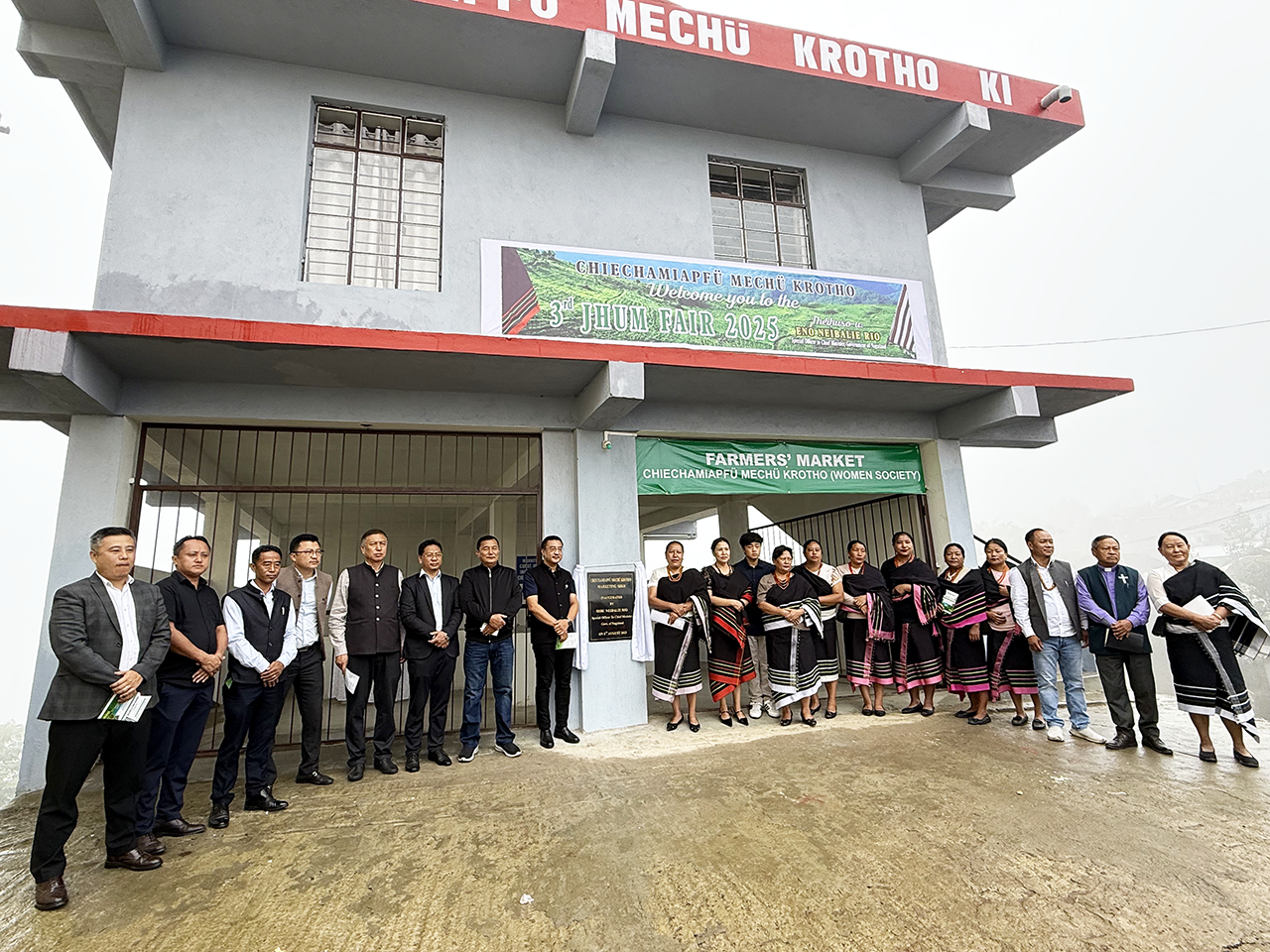The 3rd Jhum Fair 2025, along with the inauguration of the Chiechamiapfü Mechü Krotho Marketing Shed, was held today at Chiechama. The programme was organized by Chiechamiapfü Mechü Krotho.
Special guest Neibalie Rio, Special Officer to the Chief Minister, in his address, emphasized that agriculture continues to be the economic backbone of Nagaland, with over 70% of the state’s population engaged in farming. He noted that both terrace and jhum cultivation are not only vital for food production but are also deeply intertwined with the cultural identity of the state, with most festivals revolving around agricultural cycles.
Highlighting government support for farmers, Rio cited various central and state schemes. Under the PM-Kisan Scheme, Chiephobozou SDAO has 6,030 registered farmers, including 912 from Chiechama, each receiving ₹6,000 annually in three installments. This translates to ₹3.61 crore in assistance for the block, with Chiechama farmers alone benefiting by ₹54.72 lakh per year, he added.
He also highlighted the MOVCD-NER (Mission Organic Value Chain Development for North East Region) programme, which in 2024 focused on Job’s Tear cultivation at the Ciethu jhum field. A total of 140 Chiechama farmers registered under the scheme, receiving ₹7,000 each via Direct Benefit Transfer, amounting to ₹9.8 lakh. The village’s successful harvest of around 10 metric tonnes last year was marketed to New Delhi and other states, marking a significant milestone.
This year, the government has launched the National Mission on Natural Farming, with a focus on promoting natural farming methods. In Chiechama, 125 farmers forming a cluster have registered, each set to receive ₹4,000 per year in two installments, bringing a total of ₹5 lakh into the village.

Rio also acknowledged the contributions of the State Rural Livelihood Mission (SRLM), under which 39 Self-Help Groups from Chiechama, comprising 294 members, have received assistance amounting to ₹31.08 lakh.
Moving beyond statistics, Rio urged the community to safeguard indigenous seeds and crop varieties, warning that invasive crops could threaten biodiversity and reduce product value. He cited the “Chizami Seed Bank” as an example, which conserves about 150 traditional seed varieties, ensuring resilience against climate change, industrial agriculture, and natural disasters. He encouraged Chiechama to adopt similar seed preservation measures.
Download Nagaland Tribune app on Google Play

He further advised the Chiechamiapfü Mechü Krotho to collaborate with the Village Education Committee to include traditional agricultural practices in school extracurricular activities. “This will help children gain basic farming knowledge and carry forward our age-old practices,” he said.
The event began with an invocation prayer by Rev Soneiu Metha, Pastor of the Baptist Church Chiechama and included a brief marketing shed report by Thejangunuo Theünuo. Seyiekhrielie Rio, BDO of Chiephobozou, representing the Department of Rural Development also addressed the gathering. The programme was compered by Pelesano Chadi and Thepfukhrietuo Rüpreo.

